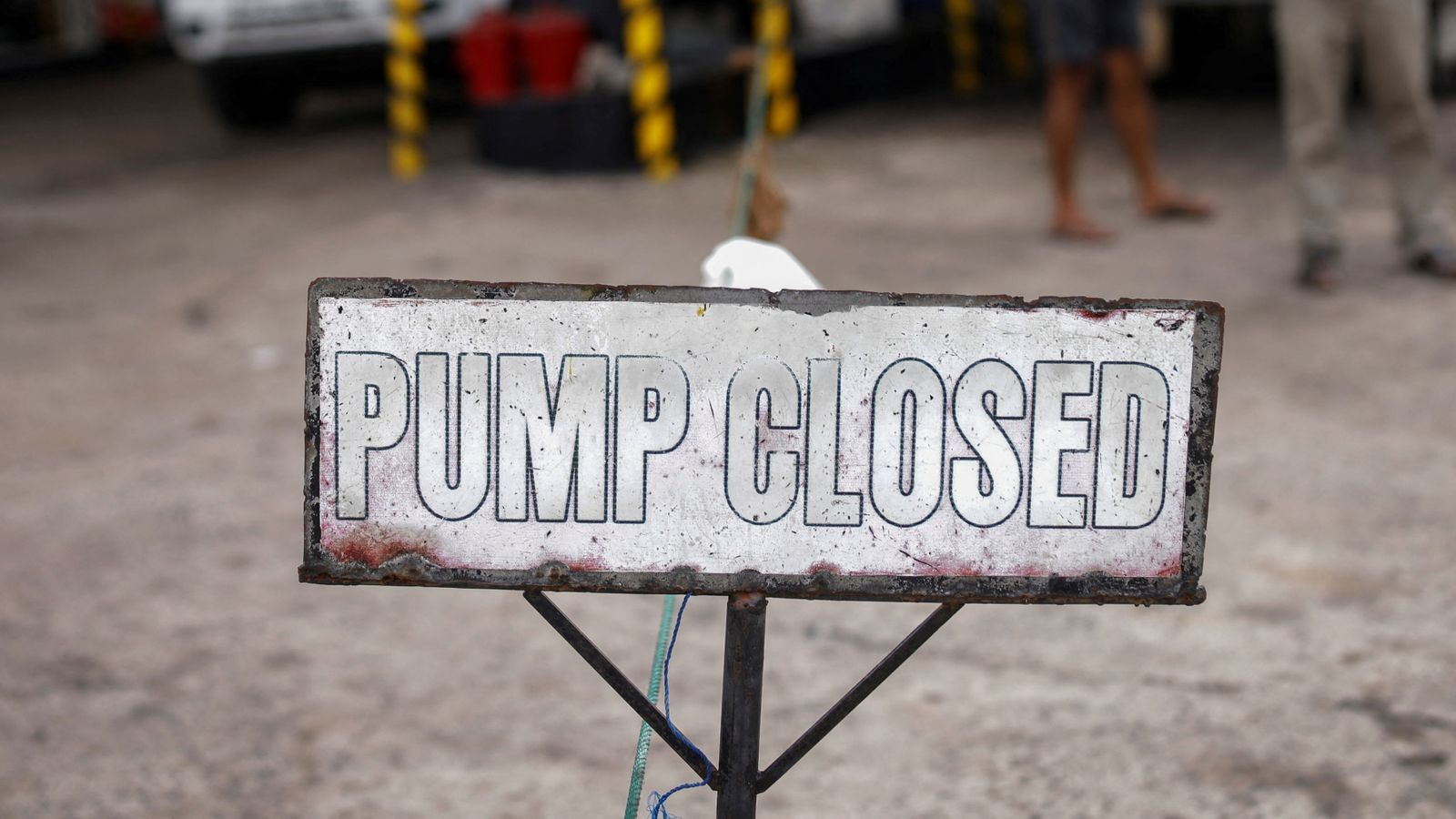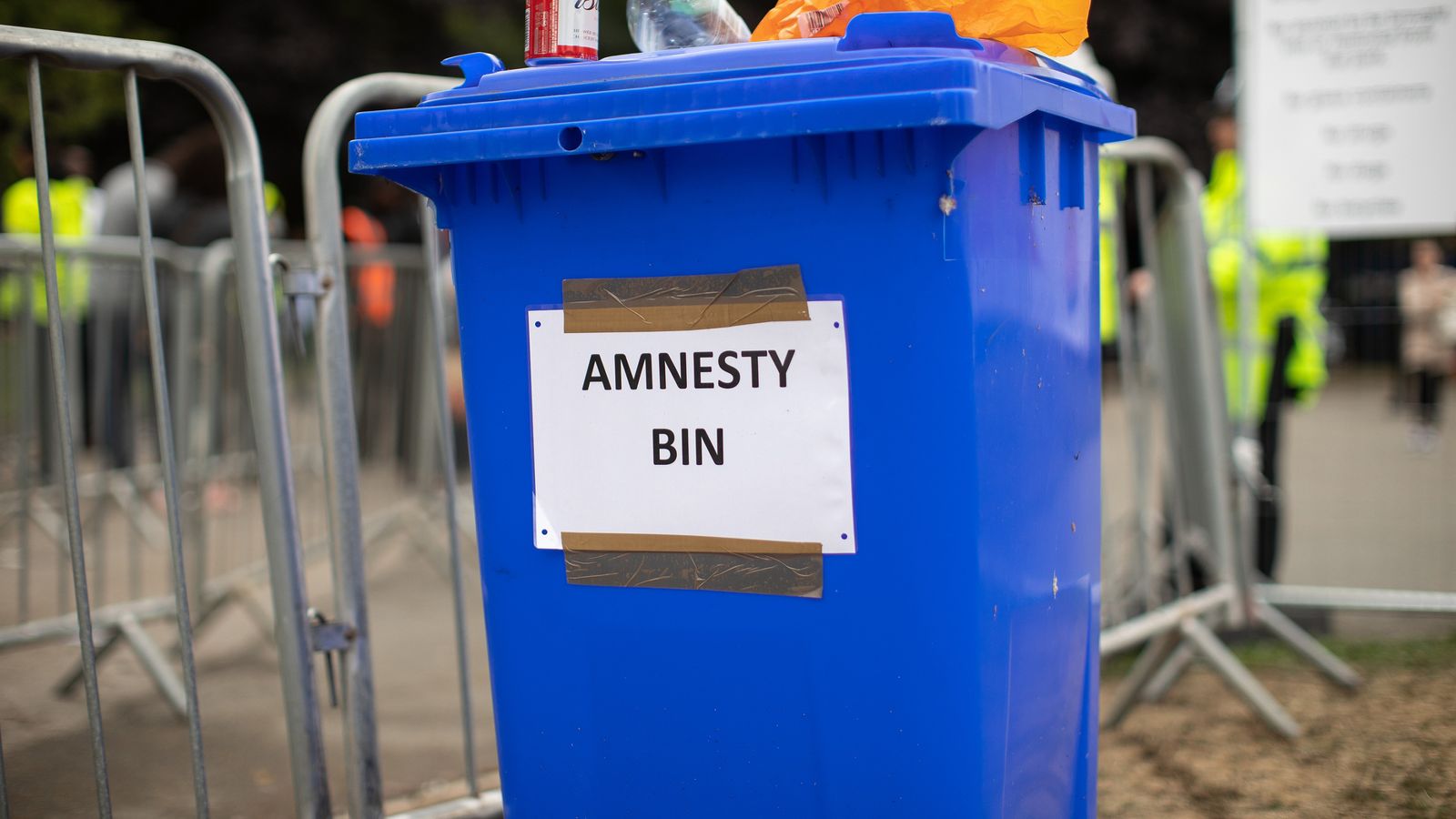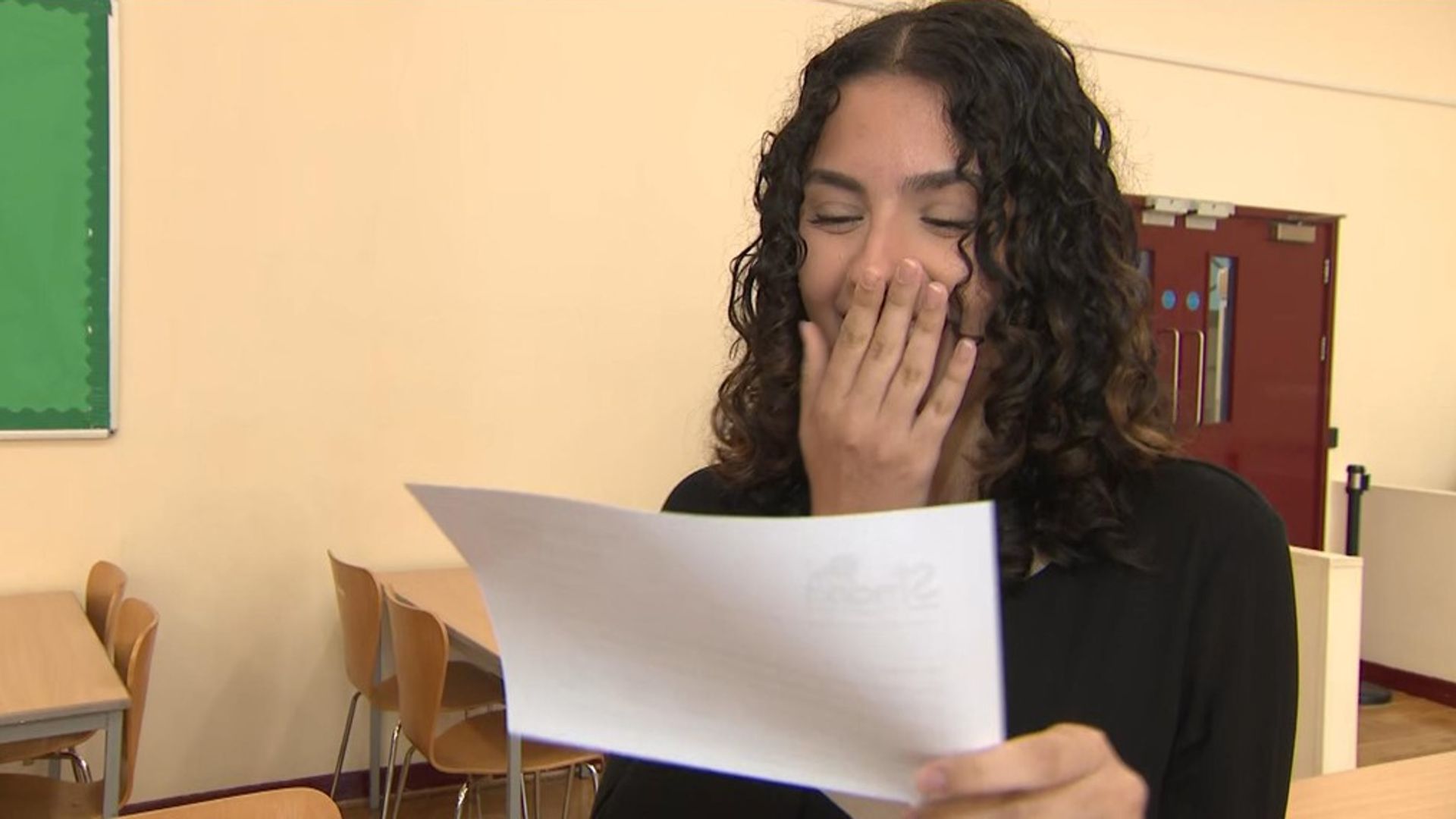Sri Lanka only has enough petrol stocks to last a single day, with the possibility of power outages lasting up to 15 hours a day, the country’s new prime minister has warned.
In his first address to the nation since his controversial appointment, Ranil Wickremesinghe said there is also a “grave concern” about the shortage of 14 medicines, with a particular lack of heart disease drugs and the anti-rabies vaccine – the latter of which has no alternative treatment.
“Payments have not been made for four months to suppliers of medicine, medical equipment, and food for patients,” said Mr Wickremesinghe.
He warned that the next couple of months “will be the most difficult ones of our lives. We must prepare ourselves to make some sacrifices and face the challenges of this period”.
It comes as the country’s power minister, Kanchana Wijesekera, told people not to join the long fuel queues that have galvanised weeks of anti-government protests.
Mr Wickremesinghe said the country needed to secure $75m (£61m) in foreign exchange in the next few days to pay for essential imports.
The country has a “very low amount” of dollars, although the president said he “obtained money to avert this crisis”.
Sri Lankans call for ‘action, not debate’ as new PM prepares to address nation on cost of living crisis
Sri Lanka: Veteran politician Ranil Wickremesinghe sworn in as PM for sixth time to ease tensions
Sri Lanka: President Rajapaksa promises changes amid ‘worst crisis’ ever – as troops have orders to shoot troublemakers
He stated: “A quarter of electricity is generated through oil. Therefore, there is a possibility that the daily power outages will increase to 15 hours a day.”
And he also added: “We must also immediately obtain $20m to provide gas to consumers. The situation of kerosene and furnace oil is even more urgent.”
Mr Wickremesinghe, who was sworn in as PM for the sixth time last week to try to bring stability to the country, said the lack of diesel “will be resolved to some extent” due to a diesel shipment that arrived on Sunday.
Shortage of 14 essential medicines
Two shipments of petrol and two of diesel using an Indian credit line could provide more relief in the next few days, he added, but the country is also facing a shortage of 14 essential medicines.
He has also proposed the privatisation of Sri Lankan airlines.
Read more: What is happening in Sri Lanka?
Please use Chrome browser for a more accessible video player
In the commercial capital Colombo, long queues of auto rickshaws, the most popular means of transport in the city,
lined up at gas stations in a fruitless wait for fuel.
“I have been in the queue for more than six hours,” said a driver, Mohammad Ali. “We spend almost six to seven hours in the line just to get petrol.”
‘Is there any point in our waiting here?’
Another driver, Mohammad Naushad, said the petrol station he was waiting at had run out of fuel.
“We’ve been here since 7-8am. in the morning and it is still not clear if they will have fuel or not,” he said. “When will it come, no one knows. Is there any point in our waiting here, we also don’t know.”
Please use Chrome browser for a more accessible video player
Hit hard by the COVID pandemic, rising oil prices and populist tax cuts by President Gotabaya Rajapaksa and his elder brother, former prime minister Mahinda Rajapaksa, the Indian Ocean island nation faces its worst economic crisis since independence in 1948 and is on the brink of bankruptcy.
A chronic foreign exchange shortage has led to rampant inflation and acute shortages of medicine, fuel and other essentials, bringing thousands of people out on to the streets in protest.
The nation has suspended repayments of $7bn (£5.7bn) in foreign loans due this year.
The IMF has said any short or long-term assistance depends on the outcome of talks with creditors on loan restructuring. It must repay about $25bn in foreign loans by 2026 out of a current total foreign debt of $51bn.
Protests have been taking place on the island nation of 22 million people since the end of March between pro-government supporters and those calling for an immediate change in authority.
An MP was killed in a stand-off with protesters and the homes of other politicians set on fire in violence across the country.








